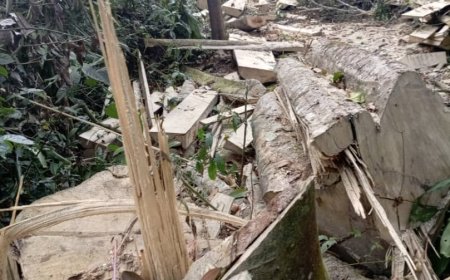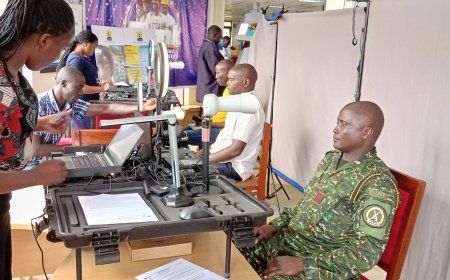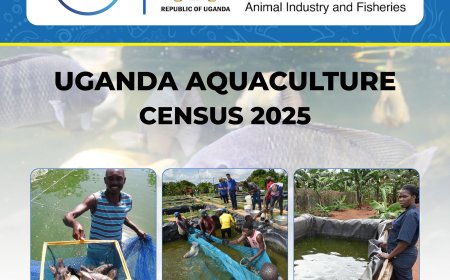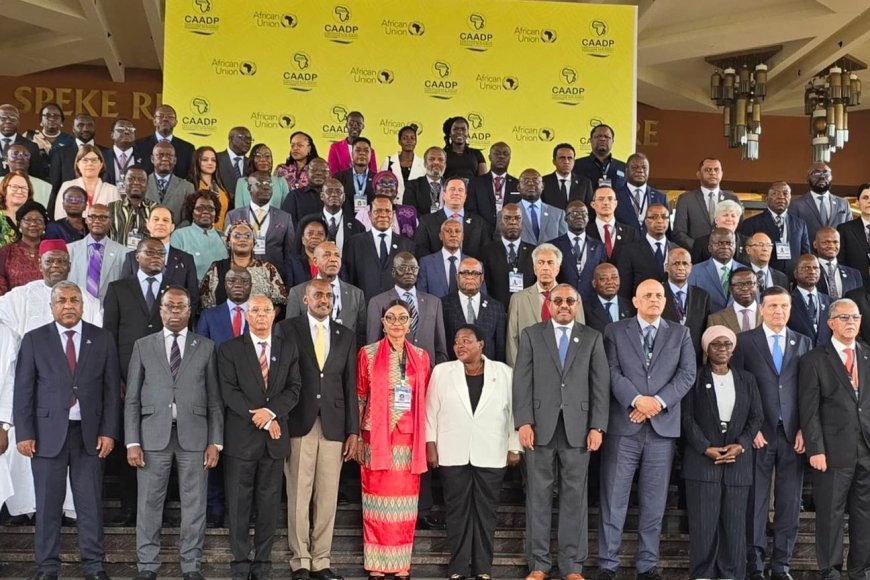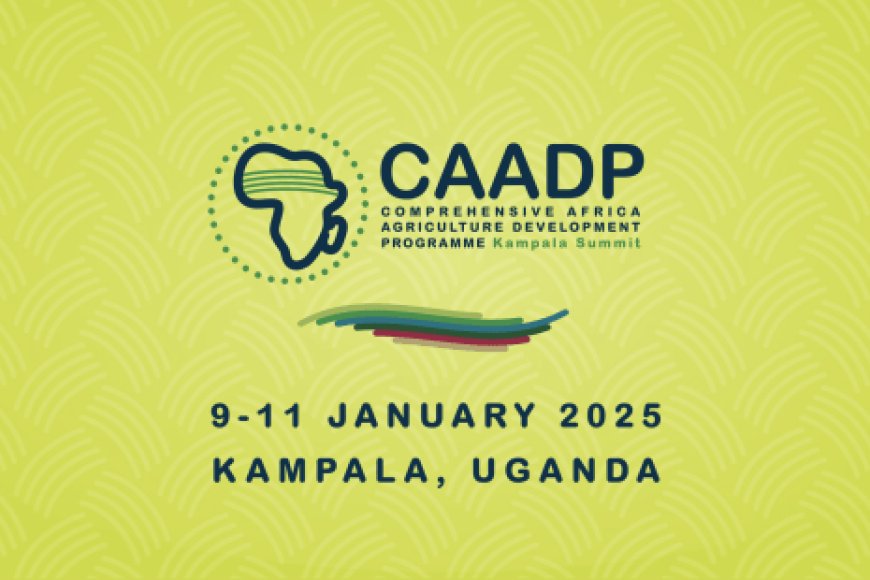Uganda Set to Conduct National Aquaculture Census in May 2025
The census aims to be the primary source of benchmark data for Uganda's aquaculture sector.
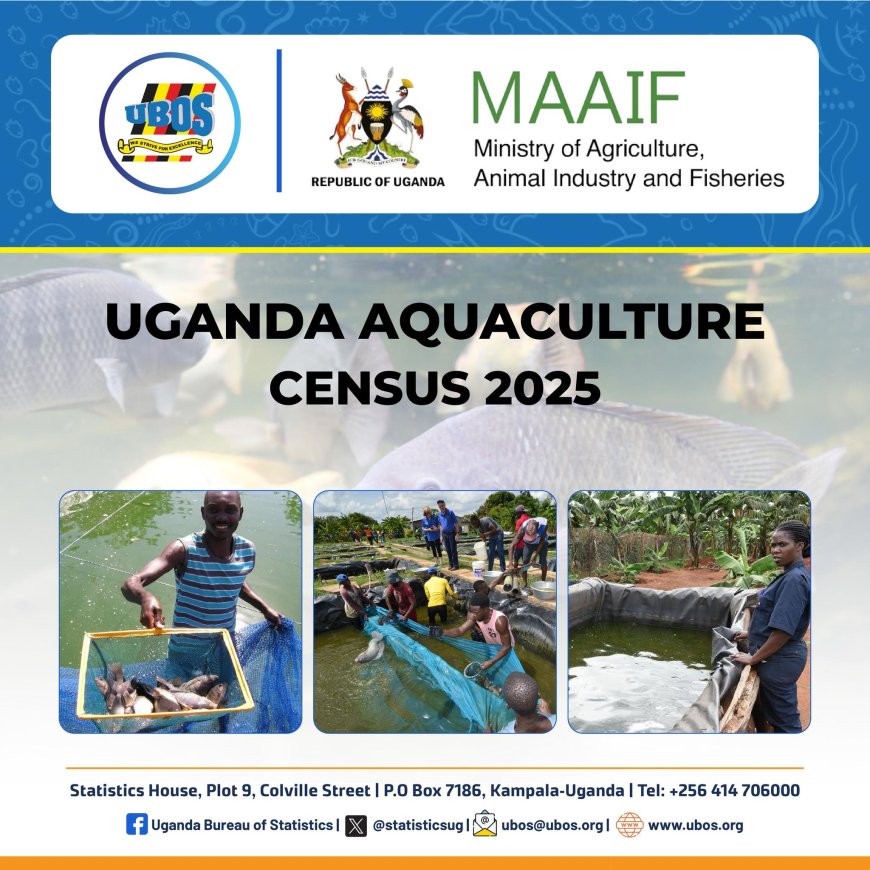
The Uganda Bureau of Statistics (UBOS), in partnership with the Ministry of Agriculture, Animal Industry and Fisheries (MAAIF), is set to roll out the Uganda Aquaculture Census 2025 starting in May. This landmark initiative will serve as the country's first comprehensive enumeration of aquaculture activities and is expected to provide critical structural data to guide policy formulation, sector planning, and sustainable development.
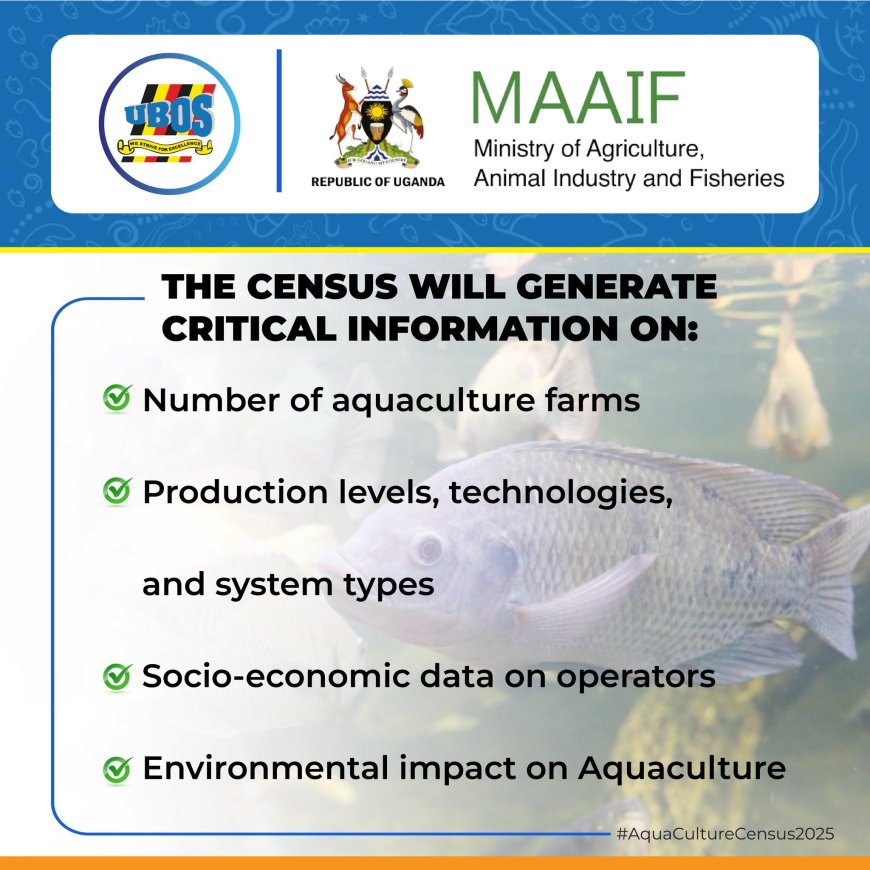
The census aims to be the primary source of benchmark data for Uganda's aquaculture sector. According to UBOS, the exercise will yield in-depth insights into the number, size, and distribution of aquaculture holdings across the country. It will also offer valuable information on the characteristics of aquaculture households, land use patterns, and production trends.
“This census underscores UBOS’s commitment to producing high-quality, timely, and relevant statistics that facilitate evidence-based decision-making at all levels of government and industry,” UBOS said in a statement.
The Uganda Aquaculture Census 2025 will gather comprehensive and accurate data from both household and non-household sectors. All aquaculture farms—regardless of their size or ownership—will be visited. Specific focus areas include:
Number of Aquaculture Farms: The census will determine how many farms are operational in the country, offering a clearer picture of sector size and scope.
Production Levels and Technologies: Enumerators will collect data on the quantity of fish and other aquatic species produced, as well as the technologies and types of systems being employed.
Types of Aquaculture Systems: Information will be gathered on cage systems, ponds, tanks, and other aquaculture infrastructure.
Socio-Economic Data: Details about farm operators, including demographics, employment figures, and income levels, will be recorded to understand the human capital and economic contribution of the sector.
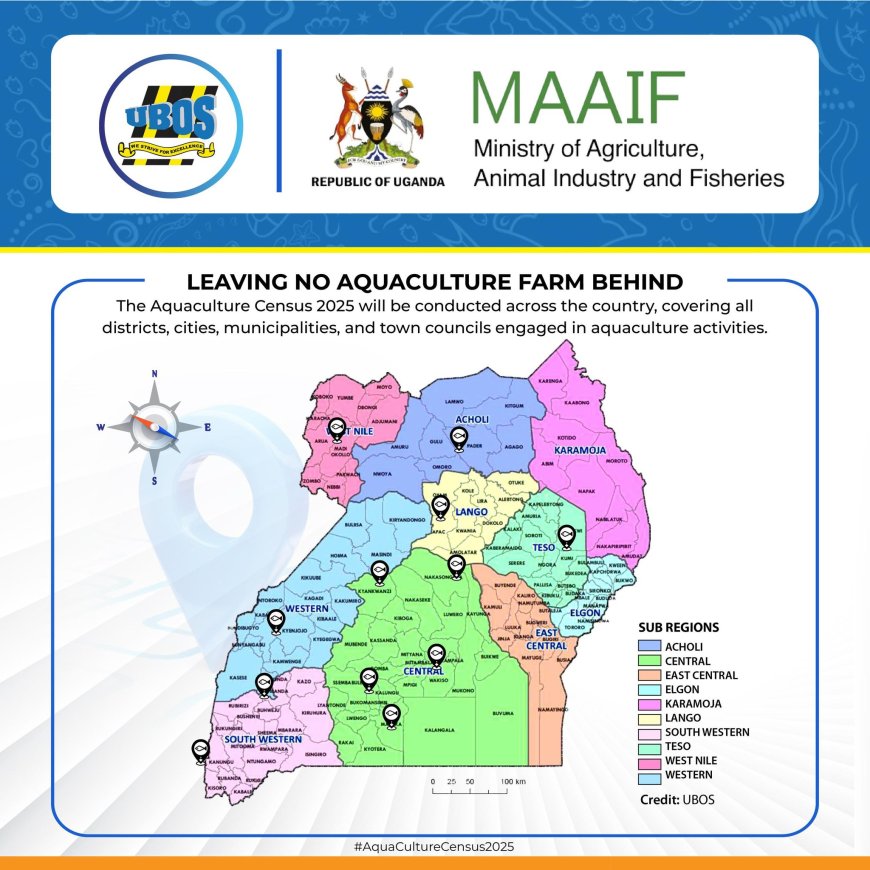
Environmental Impact: The exercise will also explore how aquaculture activities interact with natural ecosystems, shedding light on sustainability practices and environmental risks.
Aquaculture has been identified as a priority area for Uganda’s agricultural transformation, especially as the country seeks to enhance food security, improve nutrition, and create employment. The data from this census will be indispensable for both government agencies and private sector stakeholders working to modernize the industry.
The Ministry of Agriculture, Animal Industry and Fisheries expressed optimism that the census will support the development of better policies, resource allocation, and investment planning within the aquaculture sector.
UBOS has assured the public and stakeholders that all information collected will be treated with the utmost confidentiality and used solely for statistical purposes. Aquaculture operators are encouraged to cooperate with field officers during the data collection period.
As Uganda takes this significant step to gather vital statistics on its growing aquaculture industry, the Uganda Aquaculture Census 2025 represents a powerful tool for shaping the future of the sector. With accurate data in hand, Uganda can accelerate its journey toward a modern, inclusive, and sustainable aquaculture industry that supports livelihoods and national development goals.



















































































